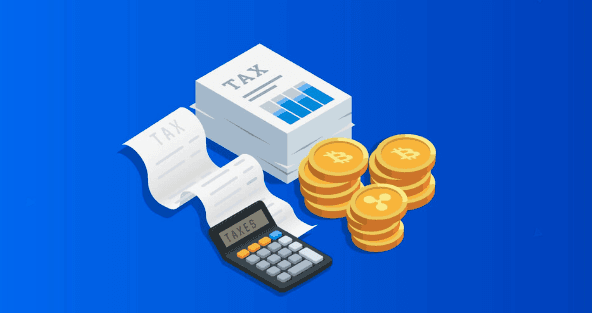How Is Cryptocurrency Taxed?
Curated from: academy.binance.com
Ideas, facts & insights covering these topics:
9 ideas
·6.37K reads
48
Explore the World's Best Ideas
Join today and uncover 100+ curated journeys from 50+ topics. Unlock access to our mobile app with extensive features.
Do I have to pay taxes when I buy or sell crypto?
- Your taxes will depend on your location, how long you've held your crypto, the type of activity you're doing, and other factors.
- In general, you'll probably need to pay taxes or offset losses for selling but not when you buy.
- As a fairly new asset, tax authorities are still developing crypto regulations.
- It's your responsibility to keep track of your taxable gains and losses and pay the right amount of tax, according to your country’s regulatory framework.
90
1.39K reads
TL;DR
In many countries, cryptocurrencies are subject to tax.
- Trading, spending or selling your crypto are often taxable events.
- To calculate your taxes, you will need to consider your capital gains and losses.
- You may also have to pay income taxes if you receive crypto as payment.
- Every jurisdiction is different, so make sure you consult a tax advisor.
87
882 reads
What’s a taxable event?
A taxable event is a transaction or activity you're required to pay taxes on.
- A taxable event in one country might not be one in another.
- Typically, transactions involving the sale of commodities, investments, and other capital assets are all taxable.
- Selling or trading your crypto is likely to be taxed.
A taxable event will leave you with capital gains (profit) or capital losses.
- If an asset you're holding appreciates and you trade it at a profit, you've made capital gains.
- If you trade or sell that asset at a loss, you've incurred capital losses.
84
616 reads
What are taxable and non-taxable events?
Generally speaking, taxable events include:
- Selling cryptocurrency for fiat
- Trading cryptocurrency for another cryptocurrency (e.g., BTC for ETH).
- Spending cryptocurrencies. In jurisdictions including the US, UK, Canada, and Australia, directly spending your crypto on goods or services can incur taxes if you made profits.
- Receiving cryptocurrency as a result of a fork, airdrop or mining.
90
692 reads
The following are generally not considered taxable events:
- Buying cryptocurrency with fiat currency (except in cases where the purchase price is lower than the fair market value of the purchased coin).
- Donating cryptocurrency.
- Gifting cryptocurrency under a specific limit.
- Transferring cryptocurrency from one wallet you own to another wallet you own.
84
658 reads
How do I calculate my taxes?
If you've bought crypto, HODLed, and sold it later, your tax liability should be fairly easy to calculate. Let's look at a simplified, US-based example.
Here's the formula:
- Fair market value - Cost basis = Capital gain / Loss
- The fair market value is the current spot price you'd find on an exchange.
- Cost basis is the original price you paid for the asset plus any fees.
Imagine you bought 2 BTC for $10,000 and sold them two years later for $30,000. You've now made $40,000 in capital gains: $60,000 (fair market value) - $20,000 (cost basis) = $40,000 (capital gains)
84
526 reads
How do tax authorities know about my cryptocurrency?
- Tax authorities such as the IRS, ATO, CRA, HMRC, and others track cryptocurrency transactions and enforce tax compliance.
- Large cryptocurrency exchanges
- Governments use data analytics tools such as Chainanalysis to pinpoint cryptocurrency users.
- The IRS and other tax authorities also partner and share data with other governmental bodies, academic institutions, and international governments to share information about cryptocurrency usage.
80
538 reads
What happens if I don’t file my cryptocurrency taxes?
In many countries, tax authorities require you to file your taxes regularly.
This can be the case even if you owe zero taxes or need a refund. Failure to file can result in fees, penalties, interest, confiscated refunds, audits.
78
553 reads
Closing thoughts
Getting your taxes right is essential.
- That’s why it's recommended to get professional help calculating your tax bill if you have any doubts. This may be the case if you’ve been trading and not just investing.
- The tax implications of regular trading are much more complicated. But most importantly, your situation for tax purposes is highly dependent on where you live.
- Make sure to use all this information with that in mind.
77
517 reads
IDEAS CURATED BY
CryptoStash 's ideas are part of this journey:
Learn more about crypto with this collection
Understanding the basics of cryptocurrency
How to store cryptocurrency securely
Risks and benefits of investing in cryptocurrency
Related collections
Similar ideas
12 ideas
Top Cryptocurrency Myths
investopedia.com
5 ideas
4 ideas
to invest or not to invest?- the Indian crypto dilemma.
gehnakundra.medium.com
Read & Learn
20x Faster
without
deepstash
with
deepstash
with
deepstash
Personalized microlearning
—
100+ Learning Journeys
—
Access to 200,000+ ideas
—
Access to the mobile app
—
Unlimited idea saving
—
—
Unlimited history
—
—
Unlimited listening to ideas
—
—
Downloading & offline access
—
—
Supercharge your mind with one idea per day
Enter your email and spend 1 minute every day to learn something new.
I agree to receive email updates


